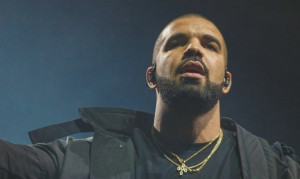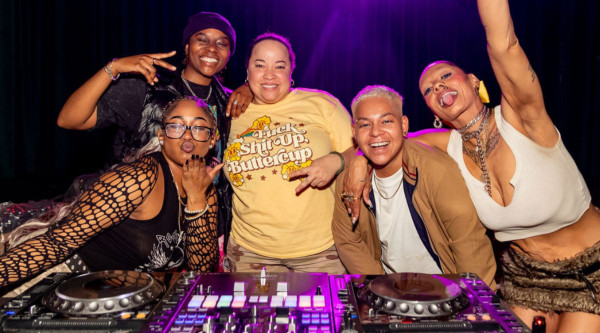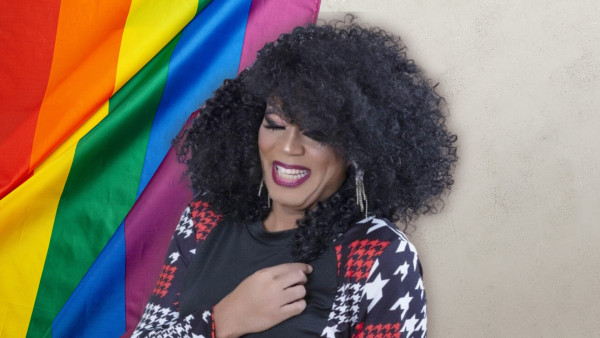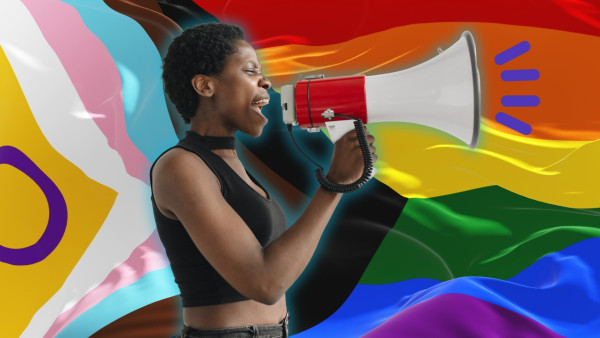Black queer youth now have openly queer and successful mentors to be inspired by. Lena Waithe, Jussie Smollet, Frank Ocean, Laverne Cox and Robin Roberts are just a few that immediately come to mind. However, we need allies in our communities as well. We need mentors and role models we can see, touch, speak to and are supported by. As a community, we need to create more inclusive spaces, adopt proactive allyship practices and end the complicity of silence.
Silence is not allyship
Have you ever found yourself in a conversation with an acquaintance or even a close group of friends, and someone shares an offensive or derogatory belief and you’re left holding the ‘shock bag’. “Why would they think I share that belief?” “I can’t believe they would say that to me.” “I never knew they felt that way.” These shock bag scenarios are the result of confusing silence with safety. You have held your politics so close to you that the people around you have imprinted their political beliefs on you. Moreover, you have practiced silence so effectively that individuals with discriminatory attitudes have made it into your space. I get it. We don’t like talking about our politics. It isn’t fun and Black people want to gather at the cookout and have a good time. However, if you’re being labelled a homophobe by association, it’s time to speak up. Side note: If you have a gay friend who is always turning down your invites or doesn’t come around when a certain somebody is on the guest list, take a hint.
Creating safe spaces
We are doing a really bad job at proactive allyship, in general. One of my favourite events to attend in the city is Afrohaus. It is a party that is unapologetic in its Blackness. It is also a Black hosted event that has committed itself to being an inclusive and safe space. How do they do this? They declare inclusivity upfront. Borrowing from Afropunk, Afrohaus has the following house rules:
NO sexism
NO racism
NO ageism
NO homophobia
NO fatphobia
NO transphobia
NO hatefulness
To some, this may appear to be lip service, but for the person who has to navigate these offensive positions on a daily basis, this is a welcome message. It sends a message to individuals who are perpetrators of such attitudes and behaviours that they won’t be accepted at Afrohaus. I challenge Black event organizers to declare their politics. Let the further marginalized in the community know that they are welcome at your event. Let them know you are willing to take the steps necessary to ensure all guests feel safe.
While I am on this topic of allyship and safe space, we are also failing the Black and Deaf community as well as the Black people living with disabilities in our community. Hosting a panel? Hire an ASL interpreter. Is your event being held in an accessible space? Add this information to your event pages, posters and promotional materials. There is too much information available to let these basic rights slip by. If you’re doing otherwise, you are a part of the problem. Your intent doesn’t negate your impact.
Are you tolerant of intolerance? Black Families, I’m talking to you.
Are you prepared to confront hate speech? Are you prepared to challenge a family member or relative? Do you ask your gay friends to tone it down (whatever that means)? How are you supporting your LGBTQI2S+ relatives? We are guilty of asking the discriminated minority person to be the bigger person. We invite our lesbian sister to the family dinner, but we ask her to wear a dress or we ask him to not mention his boyfriend or we call our transgendered cousin by their dead name. Black families, we can do better. Acceptance is not time and location-specific. When you ask your son, daughter, nephew or cousin to pretend to be someone else to “keep [insert intolerant VIP relative here] happy”, you are facilitating and practicing intolerance.
Educate. Listen. Repeat
You have the power of access to information. It is not enough to say “I don’t know” or “I wasn’t aware”. You can type into google, “What does LGBTQI2S+ mean? You can find activists, bloggers, books and resources on everything LGBTQI2S+. Listen to the personal experiences of actual LGBTQI2S+ members of the Black community. There is absolutely no excuse for being uninformed. Black people don’t have the luxury of not caring about social justice issues.
Consider attending a Pride Event
Pride is celebrated throughout the month of June with a number of events on the calendar. It is more than just a party and a parade. There are Church Services, a Pride Shabbat Dinner, a Human Rights Panel, an art festival, Pride Family Day at Wet ‘n’ wild and so much more.
It simply isn’t enough to be an ally in the comfort of your own space. I believe in my community. We aren’t a community of bigots, homophobes and haters. The problem is the best of us are content to be quiet, to be good in private, to be the one in the room with the gay friend. During the civil rights and women’s rights movements Black gay and lesbian activists stood on the frontlines and fought for Black rights. We continue to advocate for the rights of the entire Black community. Social justice movements need allies. We need your allyship.
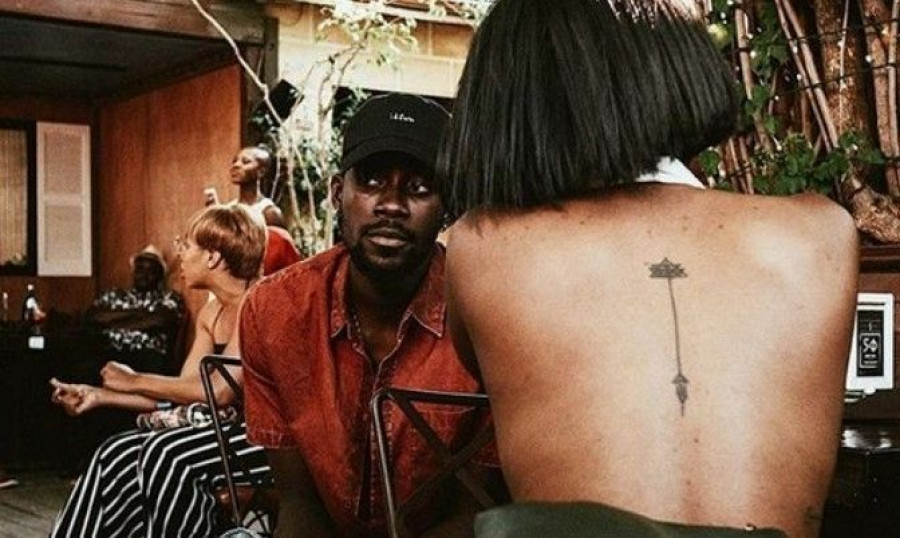
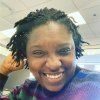 By
By 





